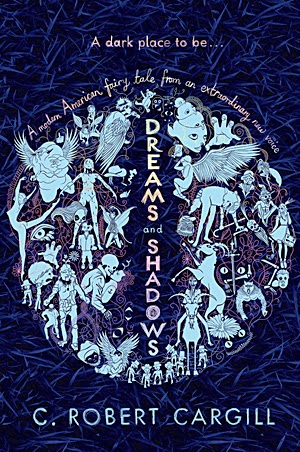"A Screaming comes across the sky..."
- First line
"What?"
- Richard M. Nixon
It has been an age that I have been locked in mortal combat with this book. I first discovered it when my dad told me about it, and that if I could read it and understand it, I would be able to prove myself in most intellectual arenas against people who do the New York Times crossword in pen. Because he spoke so highly of the book, I took it out of the library one summer in my precocious youth and sat down on the back porch (because in those days we still had a back porch, before sad and upsetting circumstances forced us to do without) and began to read.
Moments later, and about fifty pages in, I stopped and went, "Why this is simply a World War II novel written in dense and confusing language!" And closed the book, resolving never to pick it up again. This, combined with my earlier attempts to read V. at the local public pool (an attempt which may have been sadly colored by sitting in gum as I read at the local public pool), convinced me Thomas Pynchon was a complete waste of time. I believed I'd tried, seen through him, and that was all there was to it. I didn't need to read any more. I didn't need to know any more. I could safely write him off and never have to read any more ever again.
Except...then, on the advice of the usually sage and slightly whacked Steve Jackson Games, who listed The Crying of Lot 49 in their influences in the back of the manual for Illuminati*, I checked out Lot 49, and it was amazing. I still didn't think I was ready for Gravity's Rainbow, and maybe it was just the time that I read it, which was around the same time I'd read Naked Lunch and several other books of conspiracy lit written on drugs, but it was enough to make me turn around. I actually tried reading Gravity's Rainbow again in 2011, but sadly between looming overdue fees and the schedule for my then-budding book blog, I was unable to actually get very far.
But finally, after years of false starts and bizarre interruptions, I can finally say that I have read Gravity's Rainbow. And it is one of the greatest, if not the greatest work of American literature, and an all-time favorite of mine. While I cannot recommend this book to everyone, I believe that everyone should at least give it a try, as there is literally nothing else like it. It's a huge, dense, bizarre musical comedy-fantasy-science fiction-thriller that in the end is about absolutely everything, while not actually being about absolutely everything. As I have said twice before with books this month, literally the only thing you have to lose is time, so do yourself a favor. At the very least, it'll be interesting. At the most, it might open you up to some interesting thoughts that you may not have had. But either way, all you'll waste is your time.
More, as always, below.







